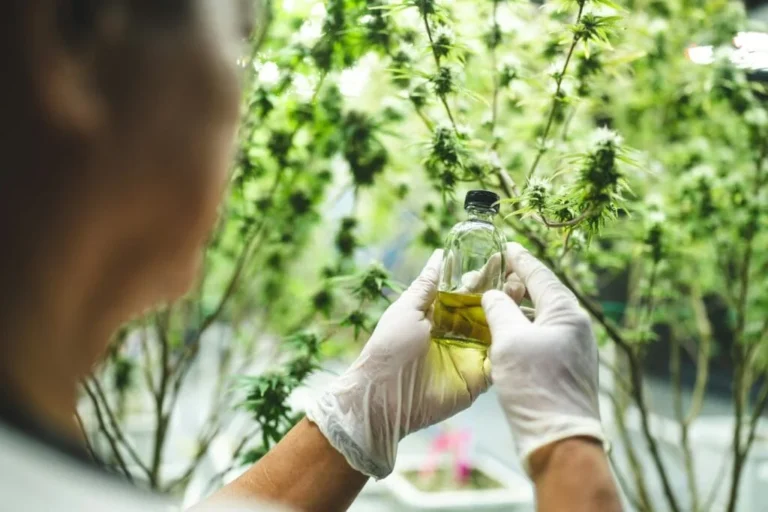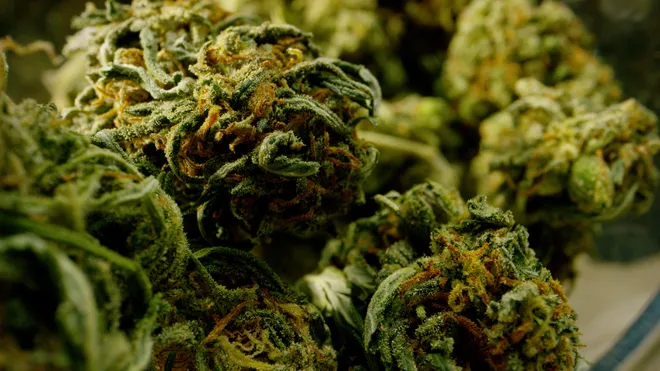What Is 11 Hydroxy Delta 9 THC
11-Hydroxy-Delta-9-THC, commonly known as 11-hydroxy-THC, is a metabolite derived from Delta-9-THC, the main psychoactive component of cannabis. Unlike Delta-9-THC, which directly enters the bloodstream through inhalation, 11-hydroxy-THC is formed when Delta-9-THC is processed by the liver after being ingested orally. This metabolic conversion alters the compound’s effects, often resulting in a stronger and more enduring experience. This is why cannabis edibles tend to produce a more intense and prolonged high compared to smoking or vaping.
The liver is crucial in transforming Delta-9-THC into 11-hydroxy-THC when THC is consumed orally. After ingestion, THC passes through the digestive tract and is absorbed by the intestines, then sent to the liver. Here, enzymes known as cytochrome P450 facilitate the conversion of Delta-9-THC into 11-hydroxy-THC. The newly formed compound is released into the bloodstream, travels to the brain, and binds to cannabinoid receptors, leading to psychoactive effects.
Due to its distinct properties, 11-hydroxy-THC often results in a more potent psychoactive experience than inhaled cannabis. While inhaling THC typically brings about effects within minutes, lasting around two to three hours, the onset of 11-hydroxy-THC is slower—usually taking between 30 minutes to 2 hours after ingestion to manifest. However, once the effects do kick in, they can persist for a significantly longer duration—often lasting between 4 to 8 hours, with peak intensity lasting up to 6 hours for some users.
Grasping the effects of 11-hydroxy-THC is crucial for individuals who favor edibles, tinctures, or capsules instead of smoking or vaping.
These effects are generally more sedative, intense, and enduring, making edibles a great option for those in search of prolonged relief from pain, sleep disturbances, or stress. Many users report a body-centered experience with 11-hydroxy-THC, often describing it as a deeper, more immersive sensation.

The potency of 11-hydroxy-THC brings a level of variability that users should keep in mind. Individual differences in liver metabolism mean that Delta-9-THC is converted to 11-hydroxy-THC at varying rates among users. Factors such as age, body weight, metabolic rate, and the activity of liver enzymes all play a role in this conversion process. This variability is why some users may feel strong effects from small doses of edibles, while others might need larger amounts to achieve similar results.
Within medical cannabis research, 11-hydroxy-THC has garnered significant attention due to its prolonged effects and enhanced potency, which can be beneficial for patients dealing with chronic pain, anxiety, or other conditions requiring sustained symptom relief. While inhaled cannabis tends to have a shorter duration of action, often necessitating more frequent dosing, edibles provide longer-lasting effects, making them a preferred choice for continuous relief throughout the day.
Moreover, 11-hydroxy-THC has also found favor among recreational users looking for a more intense and immersive experience. However, it’s essential for newcomers to approach edible THC products with caution. The delayed onset of 11-hydroxy-THC can lead to accidental overconsumption, resulting in effects that may exceed expectations. It’s advisable to start with low doses and wait at least 1 to 2 hours before considering any increase to ensure a comfortable experience.
Understanding the role of 11-hydroxy-THC is vital when considering edibles, as it helps consumers make informed choices regarding dosage, timing, and the kind of experience they desire. For those in search of potent, long-lasting effects, edibles offer a distinct experience compared to other consumption methods, largely due to the powerful influence of 11-hydroxy-THC.
In conclusion, 11-hydroxy-Delta-9-THC provides a unique and extended experience in contrast to the more immediate effects of traditional Delta-9-THC from inhalation. Whether used for medicinal or recreational purposes, a clear understanding of 11-hydroxy-THC’s impact on the body can illuminate the diverse effects cannabis can offer. As research into cannabis metabolites progresses, 11-hydroxy-THC remains an intriguing area for exploration for those interested in the full range of cannabis effects.






